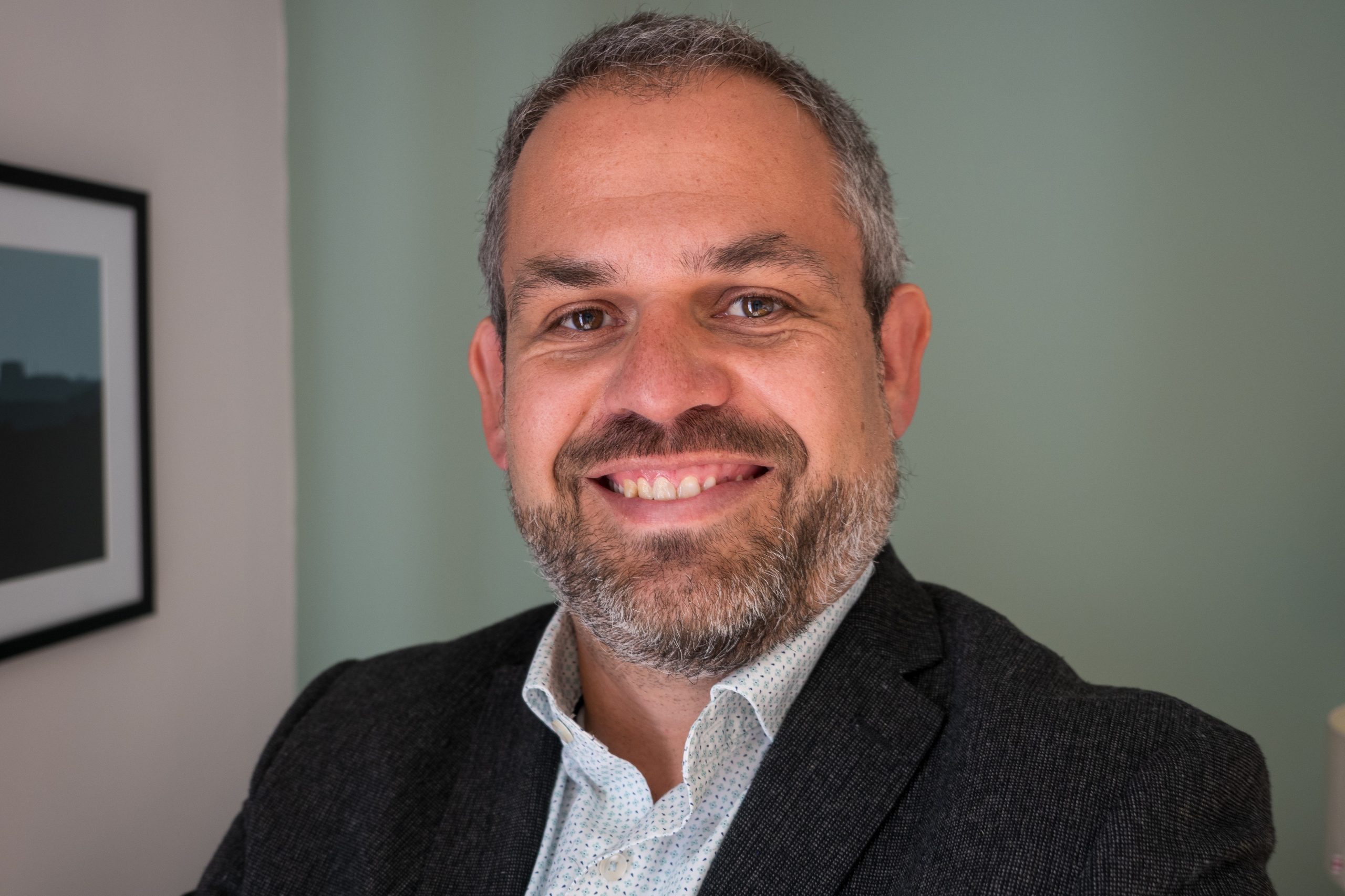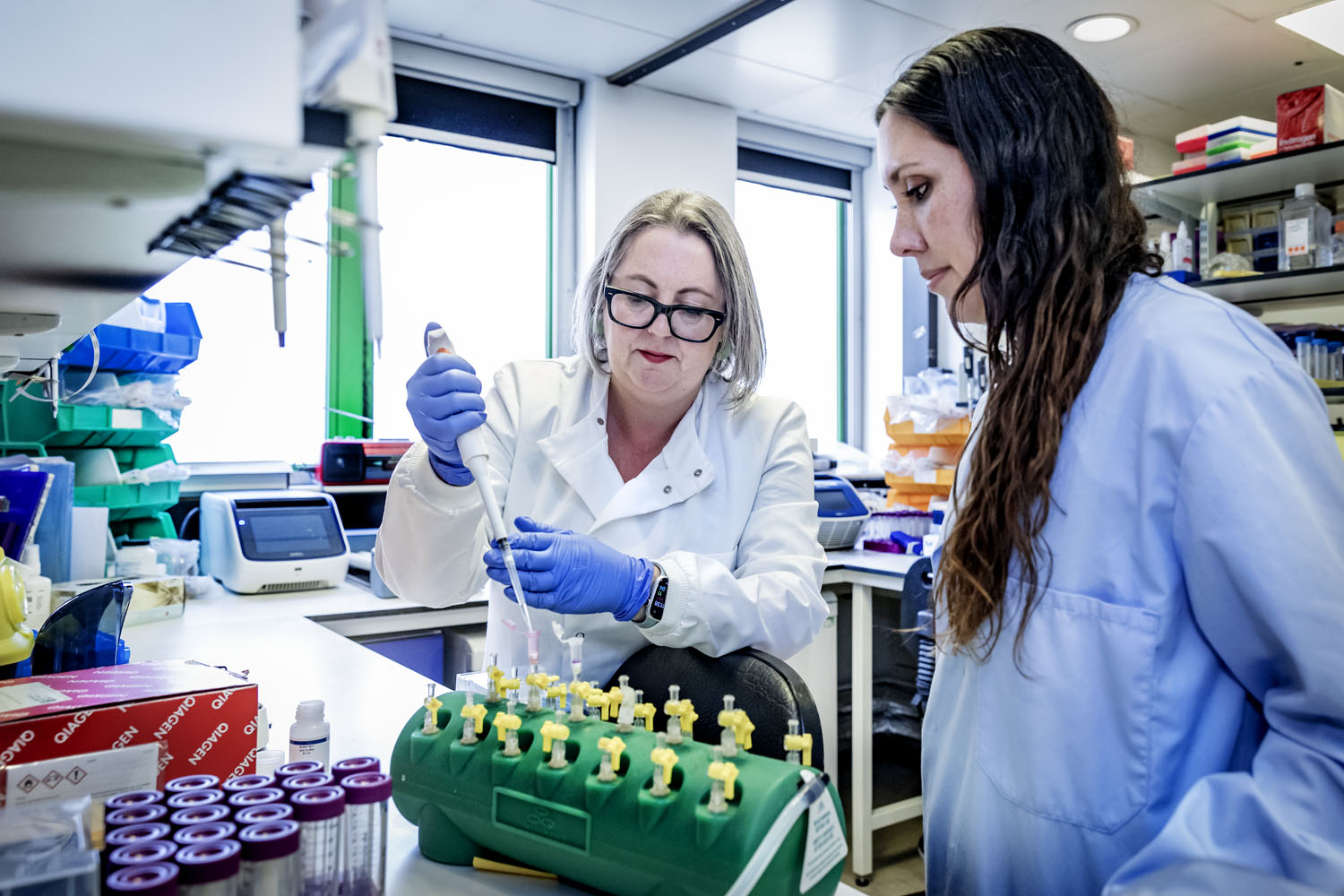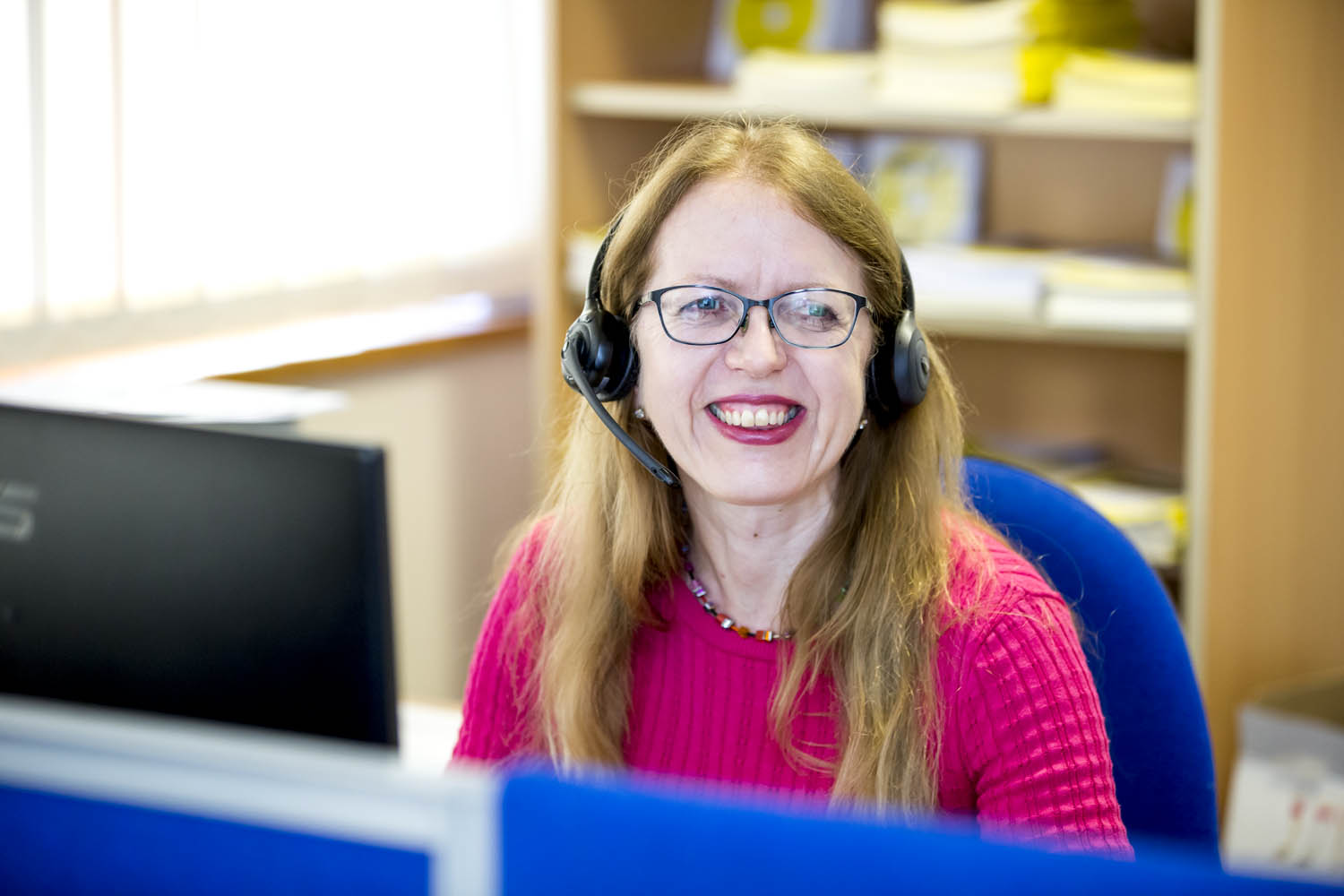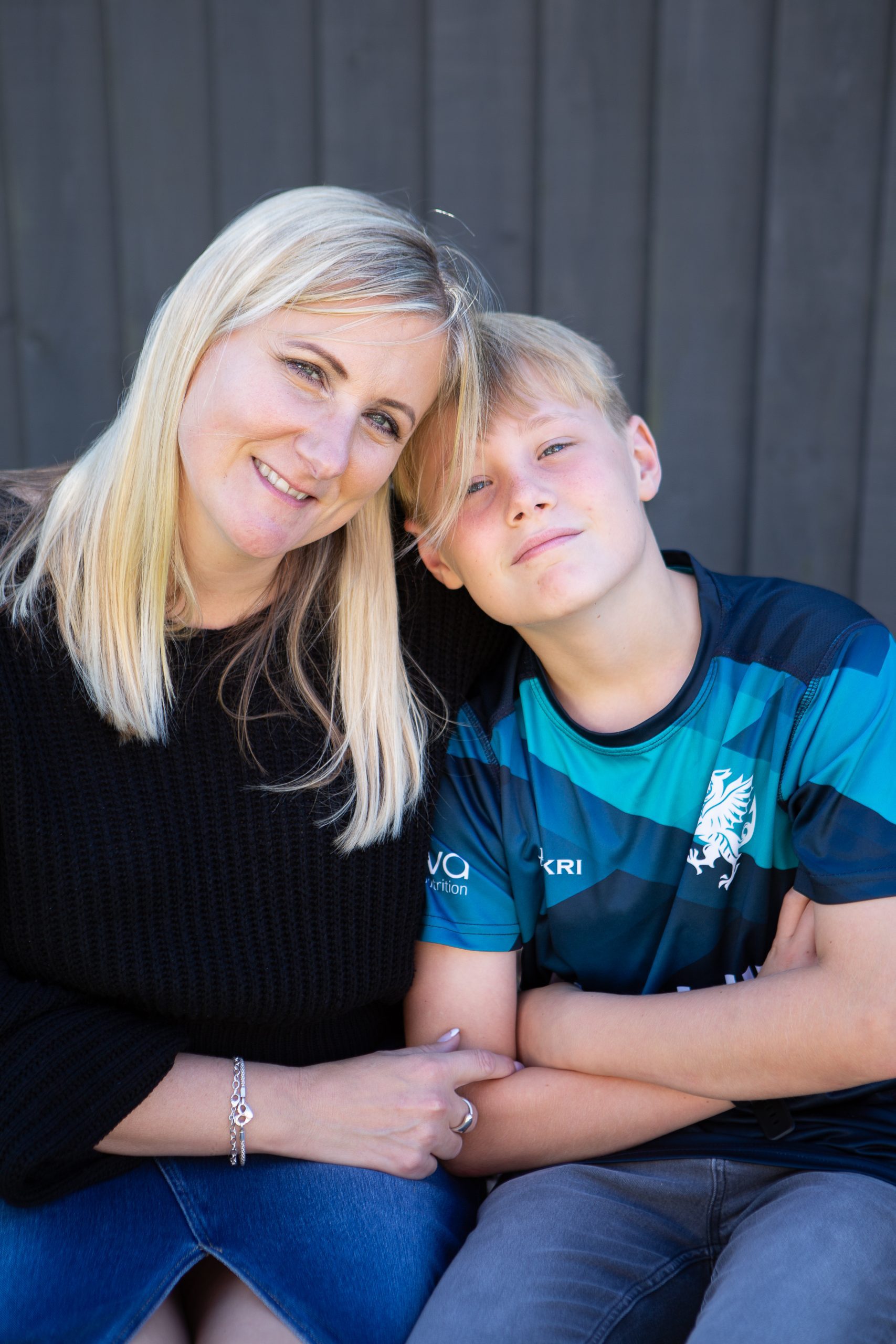Eye Health Care Charity of the Month

Ed Holloway, chief executive of the Macular Society
Dispensing opticians are in a prime position to educate patients during routine appointments, says Ed Holloway, chief executive of the Macular Society…
The Macular Society is a lifeline for people affected by macular disease, providing critical support, advocating for awareness, and funding research to beat the leading cause of sight loss in the UK. The charity has grown dramatically over the last 10 years – from 4,000 people annually in 2008 to helping more than 19,000 today.
The Society’s chief executive, Ed Holloway, tells DO Online: “Macular disease is a devastating condition, not just for those diagnosed but for their families too. It affects people’s independence and quality of life and can leave people feeling incredibly isolated and lonely. That’s why our mission is clear: we’re here to support those affected today and drive the research that will improve the future for all, ultimately finding a cure.”
But Ed highlights that the problem is not going away. He said: “Our ageing society, combined with the growing prevalence of retinal diseases and complications from conditions like myopia, means we’re only seeing the beginning of a significant challenge for individuals, families, and healthcare systems. For dispensing opticians, early intervention and signposting to support networks are critical steps in mitigating this growing burden.”
Role of the Macular Society
The Macular Society has three core objectives that define its mission:

The Macular Society is on a mission to find a cure
Finding a cure
At the forefront is the pursuit of a cure. By investing in cutting-edge research, the Society supports innovations in gene therapy, stem cell treatments, and early intervention strategies, all aimed at finding better treatments and ultimately eradicating macular disease. Recent research breakthroughs offer hope for slowing progression, which dispensing opticians can help amplify through patient education.
Providing the best advice and support
The Society offers a range of practical and emotional support to those living with macular disease, as well as their families. Central to this support system is the Society’s specialist Helpline, which provides free information, guidance and advice to anyone affected by central vision loss, whether directly or through someone they care about. Support groups and counselling services create essential spaces for connection, offering a level of understanding professionals alone cannot provide.
Making sure vision matters
The Society aims to ensure that vision remains a priority for all. It works closely with policymakers, healthcare professionals, and the public to advocate for early diagnosis and accessible, high-quality care. Campaigns like The Eyes Have It underline the importance of spotting symptoms early. Dispensing opticians play a key role in identifying these signs and educating patients, empowering them to seek timely interventions.
Vital support
The Macular Society supports everyone in their journey with macular disease and provides a range of services to help those affected, and their families. This includes practical guidance on assistive technologies, enabling patients to maximise their independence.

The charity runs a support and advice line
“The value of peer support cannot be overstated,” Ed adds. “It’s one thing to have experts who understand the science, but connecting with someone who’s walked in your shoes provides a level of comfort and understanding that professionals can’t replicate. For dispensing opticians, referrals to these groups can transform a patient’s experience after diagnosis.”
Investing in research
While providing immediate support is critical, Ed emphasised the need to invest in long-term solutions through research. This year, the Society has invested millions in projects exploring breakthroughs in gene therapy and retinal repair.
“For those affected, the idea of a cure isn’t just a hope – it’s a necessity. Sight loss is feared more than losing a limb or being diagnosed with a serious disease like diabetes, so we must do everything we can to Beat Macular Disease. By supporting research, we can give patients tangible reasons to hope for a better future.”
A human impact
The stories of people affected by macular disease highlight why the Society’s work is so vital. Take Sian, for example, whose son Archie (aged nine) was diagnosed with the same condition she has.

Sian and Archie
“I really wasn’t prepared for it,” Sian admits. “I knew I had macular disease, but I never even thought about passing that gene on to my children.”
For Sian, it’s the research that gives her hope: “I keep thinking, by the time Archie gets to 40, the world will have completely changed,” she says. “Medical science is improving the quality of life for everyone. Maybe it can change Archie’s life; maybe mine. For my son, for our children’s children, if there’s anything we can do to stop this, we absolutely must do it.”
Vision matters
“Raising public awareness of macular disease is as critical as funding research,” says Ed.
“We know early diagnosis and timely intervention can significantly slow the progression of the condition, preserving vision for longer. Yet, public understanding remains low – many people cannot identify the early signs. Dispensing opticians are in a prime position to educate patients during routine appointments.”
The Society has been instrumental in national campaigns, such as The Eyes Have It, and continues to champion and promote eye health among parliamentarians and policymakers.
Understanding the emotional impact of a diagnosis
Ed adds: “The emotional toll of sight loss or the diagnosis of a sight-threatening condition can be profound and is often underestimated. Patients often feel overwhelmed, and it takes time to process such life-changing news. Dispensing opticians can help by offering early referral to support networks and charities like the Macular Society.
“These services are not just helpful – they are transformative, offering hope and reassurance during one of the most challenging periods of a patient’s life.”
Signpost patients to the Macular Society
“Sight loss doesn’t just affect individuals – it ripples through families, workplaces, and communities,” says Ed. “But we can do something about it. With the support of professionals like dispensing opticians, we can create a future where sight loss from macular disease is no longer inevitable.”
If you speak to someone with macular disease, you can refer them to the Macular Society’s Helpline on 0300 3030 111 or help@macularsociety.org
The charity’s helpline staff are friendly and knowledgeable professionals who can answer questions and provide information and advice about any aspect of living with macular disease, as well as signpost to a range of services.
To learn more about the Macular Society or direct patients to its services, visit www.macularsociety.org
Visit the charity’s appeal donation website at www.macularsociety.org/break